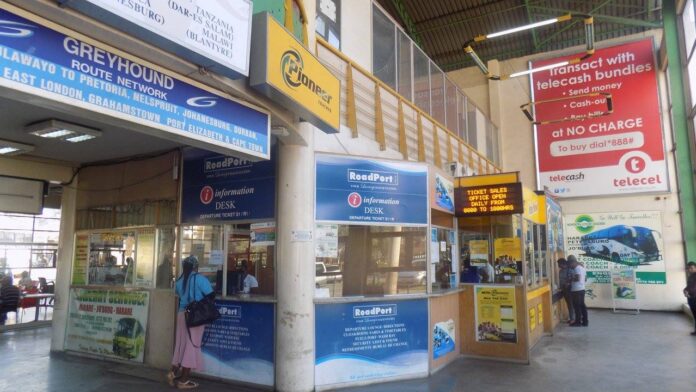The bustling hub of Harare’s Fifth Street, home to the iconic Roadport cross-border bus terminus, is facing a dramatic shift. In a bold move, Harare City Council, under the leadership of Mayor Councillor Jacob Mafume, has announced its intention to cancel the agreement with Roadport (Pvt) Limited, citing a lack of benefit for the city and its residents.
This decision, announced during a recent appearance before Parliament’s Public Accounts Committee, marks a turning point in the council’s approach to managing its assets and ensuring that agreements are mutually beneficial. The council has long been under scrutiny for entering into agreements that have not yielded the desired returns for the city.
“What is the update on the Roadport? The Roadport is another agreement that we are going to cancel. We have benefited absolutely nothing. When the Roadport was built, they forgot that it was the property of the City of Harare,” declared Mayor Mafume, leaving no room for ambiguity.
The Roadport, which began operations in the late 1990s, serves travellers heading to destinations within the Southern African Development Community (SADC) and parts of East Africa. The terminus, however, has been a source of contention, with the council asserting that it has not received any tangible benefits from the agreement.
The council’s decision extends beyond Roadport, encompassing the entire Raylton Sports Club, which was leased to the National Railways of Zimbabwe (NRZ). The mayor expressed his frustration with the NRZ’s use of the leased land, stating, “In fact, the whole Raylton Club, which we leased out to the NRZ, instead of building bullet trains, they are building tuckshops. We are going to demolish the tuckshops. We are going to demolish the structure that is there on account that we have not benefited anything as a city and the residents have not benefited anything.”
The council’s decision to demolish the tuckshops reflects its commitment to reclaiming control over its assets and ensuring that they are utilised for the benefit of the city and its residents. The decision to demolish the tuckshops, which were built on a site next to Roadport, is a clear indication of the council’s determination to enforce the terms of the lease agreement and prevent further unauthorised development.
The council’s long-term vision for the Roadport, however, extends beyond simply cancelling the existing agreement. Mayor Mafume revealed that the city’s master plan envisions relocating the terminus from its current location in the city centre to an area near the Mbudzi interchange. This move is intended to alleviate congestion in the city centre, a long-standing issue that has plagued Harare for years.
“We are looking at some of the past council’s contracts that were not benefiting residents,” Mayor Mafume explained, highlighting the council’s commitment to reviewing and renegotiating agreements that are not in the best interests of the city.
The council’s decision to cancel the Roadport agreement and demolish the tuckshops at Raylton Sports Club is a significant step in its ongoing efforts to address past mistakes and ensure that future agreements are mutually beneficial. This move is expected to have a ripple effect, prompting a review of other agreements that may not be serving the interests of the city and its residents.
The council’s actions demonstrate a commitment to transparency and accountability, as well as a willingness to take decisive action to protect the interests of the city and its residents. This move has been met with mixed reactions, with some commending the council for taking a stand against agreements that have not benefited the city, while others express concern about the potential disruption to the operations of the Roadport and the impact on travellers.
The future of the Roadport remains uncertain, with the council’s decision to cancel the agreement and relocate the terminus raising questions about the immediate and long-term impact on the bus services and the travellers who rely on them.












